第62章 XI. (10)
Thirdly, But yet further. The Male Line of the Part of the Father ascending, shall in AEternum exclude the Female Line of the Part of the Father ascending; and therefore in the Case proposed of the Son's purchasing Lands and dying without Issue, the Sister of the Father's Grandfather, or of his Great-Grandfather, and so in infinitum shall be preferred before the Father's Mother's Brother, tho' the Father's Mother's Brother be a Male, and the Father's Grandfather or Great-Grandfather's Sister be a Female, and more remote, because she is of the Male Line, which is more worthy than the Female Line, though the Female Line, be also of the Blood of the Father.
Fourthly, But as in the Male Line ascending, the more near is preferred before the more remote; so in the Female Line descending, so it be of the Blood of the Father, it is preferred before the more remote. The Son, therefore purchasing Lands, and dying without Issue, and the Father, Grandfather, and Great-Grandfather, and so upward, all the Male Line being dead without any Brother or Sister, or any descending from them; but the Father's Mother has a Sister or Brother, and also the Father's Grandmother has a Brother, and likewise the Father's GreatGrandmother has a Brother: Tho' it is true, that all these are of the Blood of the Father; and tho' the very remotest of them, shall exclude the Son's Mother's Brother; and tho' it be also true, that the Great-Grandmother's Blood has passed through more Males of the Father's Blood than the Blood of the Grandmother or Mother of the Father; yet in this Case, the Father's Mother's Sister shall be preferred before the Father's Grandmother's Brother, or the Great Grandmother's Brother, because they are all in the Female Line, viz. Cognati (and not Agnati), and the Father's Mother's Sister is the nearest, and therefore shall have the Preference as well as in the Male Line ascending, the Father's Brother or his Sister shall he preferred before the Grandfather's Brother.
Fifthly, But yet in the last Case, where the Son purchases Lands and dies without Issue, and without any Heir on the Part of the Grandfather, the Lands shall descend to the Grandmother's Brother or Sister, as Heir on the Part of his Father; yet if the Father had purchased this Land and died, and it descended to his Son who died without Issue, the Lands should not have descended to the Father's Mother's Brother or Sister, for the Reasons before given in the Third Rule: But for want of Brothers or Sisters of the Grandfather, Great-Grandfather, and so upwards in the Male ascending Line, it should descend to the Father's Grandmother's Brother or Sister which is his Heir of the Part of his Father, who should be preferred before the Father's Mother's Brother, who is in Truth the Heir of the Part of the Mother of the Purchaser, tho' the next Heir of the Part of the Father of him that last died seized; and therefore, as if the Father that was the Purchaser had died without Issue, the Heirs of the Part of the Father, whether of the Male or Female Line, should have been preferred before the Heirs of the Part of the Mother; so the Son, who stands now in the Place of the Father, and inherits to him primarily, in his Father's Line, dying without Issue, the same Devolution and hereditary Succession should have been as if his Father had immediately died without Issue, which should have been to his Grandmother's Brother, as Heir of the Part of the Father, though by the Female Line, and not to his Mother's Brother, who was only Heir of the Part of his Mother, and who is not to take till the Father's Line both Male and Female be spent.
Sixthly, If the Son purchases Lands and died without Issue, and it descends to any Heir of the Part of the Father, and then if the Line of the Father (after Entry and Possession) fail, it shall never return to the Line of the Mother; tho' in the first Instance, or first Descent from the Son, it might have descended to the Heir of the Part of the Mother; for now by this Descent and Seisin it is lodged in the Father's Line, to whom the Heir of the Part of the Mother can never derive a Title as Heir, but it shall rather escheat: But if the Heir of the Part of the Father had not entred, and then that Line had failed, it might have descended to the Heir of the Part of the Mother as Heir to the Son, to whom immediately, for want of Heirs of the Part of the Father, it might have descended.
Seventhly, And upon the same Reason, if it had once descended to the Heir of the Part of the Father of the Grandfather's Line, and that Heir had entred, it should never descend to the Heir of the Part of the Father of the Grandmother's Line, because the Line of the Grandmother was not of the Blood or Consanguinity of the Line of the Grandfather's Side.
Eighthly, If for Default of Heirs of the Purchaser of the Part of the Father, the Lands descend to the Line of the Mother, the Heirs of the Mother of the Part of her Father's Side, shall be preferred in the Succession before her Heirs of the Part of her Mother's Side, because they are the more worthy.
And thus the Law stands in Point of Descents or Hereditary Successions in England at this Day, and has so stood and continued for above four Hundred Years past, as by what has before been said, may easily appear. And Note, The most Part of the Eight Rules and Differences above specified and explained, may be collected out of the Resolutions in the Case of Clare versus Brook, &c. in Plowden's Commentaries, Folio 444.